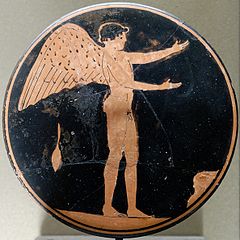by Jeffrey Hoffman*
Read more in the “So, what about the…” series:
So, what about the Sin? | So, what about the Grace? | So, what about the Love?
So, what about the Bitterness?
A Song of Songs
Let him kiss me with the kisses of his mouth: for thy love is better than wine… Behold, thou art fair, my love; behold, thou art fair; thou hast doves’ eyes. Behold, thou art fair, my beloved, yea, pleasant: also our bed is green. The beams of our house are cedar, and our rafters of fir…
As the lily among thorns, so is my love among the daughters. As the apple tree among the trees of the wood, so is my beloved among the sons. I sat down under his shadow with great delight, and his fruit was sweet to my taste. He brought me to the banqueting house, and his banner over me was love…
By night on my bed I sought him whom my soul loveth: I sought him, but I found him not. I will rise now, and go about the city in the streets, and in the broad ways I will seek him whom my soul loveth: I sought him, but I found him not. The watchmen that go about the city found me: to whom I said, Saw ye him whom my soul loveth? It was but a little that I passed from them, but I found him whom my soul loveth: I held him, and would not let him go, until I had brought him into my mother’s house, and into the chamber of her that conceived me. I charge you, O ye daughters of Jerusalem, by the roes, and by the hinds of the field, that ye stir not up, nor awake my love, till he please.
Behold, thou art fair, my love; behold, thou art fair; thou hast doves’ eyes within thy locks: thy hair is as a flock of goats, that appear from mount Gilead. Thy teeth are like a flock of sheep that are even shorn, which came up from the washing; whereof every one bear twins, and none is barren among them. Thy lips are like a thread of scarlet, and thy speech is comely: thy temples are like a piece of a pomegranate within thy locks. Thy neck is like the tower of David builded for an armoury, whereon there hang a thousand bucklers, all shields of mighty men. Thy two breasts are like two young roes that are twins, which feed among the lilies…
Thou hast ravished my heart, my sister, my spouse; thou hast ravished my heart with one of thine eyes, with one chain of thy neck. How fair is thy love, my sister, my spouse! how much better is thy love than wine! and the smell of thine ointments than all spices! Thy lips, O my spouse, drop as the honeycomb: honey and milk are under thy tongue; and the smell of thy garments is like the smell of Lebanon…
My beloved put in his hand by the hole of the door, and my bowels were moved for him. I rose up to open to my beloved; and my hands dropped with myrrh, and my fingers with sweet smelling myrrh, upon the handles of the lock. I opened to my beloved; but my beloved had withdrawn himself, and was gone: my soul failed when he spake: I sought him, but I could not find him; I called him, but he gave me no answer…
My beloved is white and ruddy, the chiefest among ten thousand. His head is as the most fine gold, his locks are bushy, and black as a raven. His eyes are as the eyes of doves by the rivers of waters, washed with milk, and fitly set. His cheeks are as a bed of spices, as sweet flowers: his lips like lilies, dropping sweet smelling myrrh. His hands are as gold rings set with the beryl: his belly is as bright ivory overlaid with sapphires. His legs are as pillars of marble, set upon sockets of fine gold: his countenance is as Lebanon, excellent as the cedars. His mouth is most sweet: yea, he is altogether lovely. This is my beloved, and this is my friend, O daughters of Jerusalem. — excerpts from the Song of Songs, the Authorised Version of 1611 (KJV)

Jeffrey Hoffman
These words from what is one of the most sensual love songs the world has known — words that celebrate the physical, erotic aspects of love between two people — are words from Scripture itself. In the Jewish interpretive tradition, its intensely erotic imagery is viewed as a metaphor of God’s love for the people of Israel. By extension, that metaphorical understanding carries over into an orthodox interpretation in Christian theology. If that is indeed the way we were meant to understand this book, King Solomon, the historically presumed author of the Song of Songs, employs the most sensual of metaphors to evoke this mystical relationship between God and His people.
These are metaphors that are best understood by one who has experienced the delights of physically loving another person. These metaphors necessarily raise profound questions in the mind of the discerning Puritan and cause an uncomfortable cognitive dissonance for the intellectually honest Biblical literalist: if God does not want me to enjoy my body, why then does He give us this poem in Scripture unabashedly celebrating the delights of ravishing and being ravished by one’s beloved, and offering literary sexual metaphors-within-the-metaphor that might cause even Sigmund Freud to blush at their overt double entendres?
Judging from the many unpublished comments we have received in response to even the most theologically conservative and least sexually-themed of posts here at BJUnity.org — shockingly explicit descriptions of just what it is some of our fundamentalist detractors imagine that we spend our lives doing and for which those same people, blind to the obvious truth that they have spent considerable time and mental effort imagining these things and giving them their lurid written utterance, then condemn us — a lot of American Christians obsess about the details of other people’s sex lives. (We read each and every comment to our site, but we do not publish a great many for various reasons, not least of which is the fact that this is a public portal of support for LGBT+ people within or affected by fundamentalism, and not a purveyor of pornographic prose).
I attribute this unhealthy and, frankly, ungodly obsession to what I have begun to term the modern purity cult that has reached a fever pitch in its messaging within fundamentalist and evangelical churches today. It is deeply disturbing that popular evangelical theologians are peddling their theories that a sexual indiscretion (sin, if you will) will forever banish a person from the perfect will of God in her life, a messageof rejection and despair that many of those of us who come from the Bob Jones University network had deeply ingrained in our psyches.There is a Gnostic heresy at the root of this negativity about the body and sex that has so many people simultaneously terrified of their own fantasies and obsessed with their perceptions of other people’s sex lives. Bob Jones III (and many of BJU’s Bible faculty with him) preaches so often about a war between the spirit and the flesh that those who regularly hear his rants and diatribes on this subject are likely inured to the pernicious subtlety of this Gnostic message. As a result, we have been preconditioned to read the texts of Paul and Peter which talk about sin through a sexual lens and to believe that God hates the human body and its sexuality.
And yet, when we carefully consider the mystery of the Incarnation, the ancient Johannine assertion that Jesus Christ took on our very fleshly nature by being born into the world as a human; the very sensual, sexual humanity that the poet of the Song of Songs celebrates in his extended erotic metaphor, we are no longer enthralled by this dualist notion that we must separate our bodies from our spirits to live out God’s will for our lives. On this point, especially, modern fundamentalists are completely divorced from an orthodox understanding of Scripture: Jesus was incarnate: true God of true God and true Man of true Man. “He was in all points tempted like as we are, yet without sin” (Hebrews 4: 15), and He alone is the sinless one.
Sex and the Will of God
I remember the first time I figured out that both of my late grandmothers had been already pregnant on their wedding nights: I was in elementary school or perhaps junior high in the Bob Jones educational system. The assignment for history class was to research and write a family history from interviews with our living relatives. I was dimly aware that a normal human pregnancy lasts nine months. It suddenly dawned on me as I compiled wedding dates and birth dates that the intervals between weddings and oldest children’s births were considerably less than nine months for both women. I remember in that realization being overwhelmed by personal shame at the discovery, as though I had witnessed a terrible crime and had been forever marred by things I could not control. My mother’s embarrassed, silent nod in answer to my incredulous questions about the dates only served to reinforce this sense of dread I had that those two wonderful women whom I deeply loved and whom I knew to be good people were forever tarnished by this terrible secret from their past; that God couldn’t perfectly love and wouldn’t ever fully bless my grandmothers because of their past shame. Thousands of people have been indoctrinated with this rubbish theology that completely denies the grace of God and limits His power by a human metric of unattainable perfection.
When we scour the gospels for any mention of sex or sexuality by Jesus, we come to a story about a Samaritan woman He randomly meets at a town well as he is passing through on His travels. Jesus tells her He knows she has had a number of husbands and that she is living with a man to whom she is not married. She is astonished that He should know this about her and immediately perceives that He is a prophet, whereupon He reveals His true identity as Messiah to her. But does He ever tell her she is “outside of God’s will” for her life, or that she has missed the boat on salvation? No. He goes out of His way to befriend her, breaking Kosher. (His contact with her scandalizes the disciples, because He broke the ceremonial law by befriending her).
Reading further, we come to Jesus’s very unusual, and for the time unorthodox, discussions on marriage. Unorthodox, because Jesus acknowledges the equal humanity of both people in a marriage relationship, cleaving to one another and “they twain becoming one flesh,” and then He goes one further by challenging the Torah’s provisions for divorce. In one of many (tortured) hypothetical trick questions presented to Him, the Pharisees questioned Jesus about whom a woman would be married to in heaven, her first husband or the six men, his brothers, she had married sequentially after his death, to fulfill the Torah’s requirement that she bear their brother an heir. Jesus deftly dismisses the question by asserting that those kinds of relationships will not exist in the afterlife and are only for this present life.
In some accounts of her story, Mary Magdalene is called a harlot or a prostitute and other passages describe her as having a mental illness (demon possession). Yet, church tradition has long held that she was the woman Jesus allowed to wash His feet using her hair and a very expensive perfume; and she was the very first person to bear witness to the resurrection of Jesus from the tomb.
When the Roman centurion comes to Jesus and begs him to heal his pais (his boyfriend) who is gravely ill, He says “I’ve not seen faith like this in all of Jerusalem.” There is no condemnation, no judgment, no disparaging remark about the man’s sexual relationship. Instead Jesus’s response is to affirm the depth of that man’s faith in the most superlative of terminology, and to heal his beloved.
And then we come to the woman who was caught in the act of adultery, the one sin of a sexual nature forbidden in the Ten Commandments which Moses brought down from Mt. Sinai on those famous stone tablets, the foundation of all the Torah. Jesus’s reply to her accusers is one we could easily characterize as being “So what?”

The Samaritan Woman at the Well
Annibale Carracci (1560–1609)
So, what about the sex?
I believe that Jesus Christ does not care nearly so much with whom you sleep as He cares how you love.
As I mentioned in my last article, “So, what about the Love?” Jesus’s new commandment, the mandatum, as it is called in Latin, is to “Love one another as I have loved you.” This new commandment is the keystone to discerning a solution for every ethical consideration the Christian faces; and it is related to the fulcrum of the summary of the law “on which hangs all the law and the prophets.”
“There is no biblical sex ethic. Instead it [the Bible] exhibits a variety of sexual mores, some of which changed over the thousand-year span of biblical history. Mores are unreflective customs accepted by a given community. Many of the practices that the Bible prohibits, we allow, and many that it allows, we prohibit. The Bible only knows a love ethic, which is constantly being brought to bear on whatever sexual mores are dominant in any given country, culture, or period…
Our moral task, then, is to apply Jesus’ love ethic to whatever sexual mores are prevalent in a given culture. This doesn’t mean everything goes. It means that everything is to be critiqued by Jesus’ love commandment… We can challenge both gays and straights to question their behaviors in the light of love and the requirements of fidelity, honesty, responsibility, and genuine concern for the best interests of the other and of society as a whole.
Christian morality, after all, is not an iron chastity belt for repressing urges, but a way of expressing the integrity of our relationship with God. It is the attempt to discover a manner of living that is consistent with who God created us to be. For those of same-sex orientation, as for heterosexuals, being moral means rejecting sexual mores that violate their own integrity and that of others, and attempting to discover what it would mean to live by the love ethic of Jesus.” [emphases added]
— the late theologian Dr. Walter Wink, in his famous essay “Homosexuality and the Bible,” 1979, revised
Abstinence before marriage is certainly a sexual ethic for which we can find Biblical justification. It is most assuredly a worthy goal to aspire to a celibate lifestyle as a single person and to a chaste pre-marital relationship with one’s spouse. The Apostle Paul even suggests that the life of celibacy is preferable to a married life for some people (I Corinthians 7:7). It was this view that led to the development of Christian asceticism and the foundation of monastic communities as long ago as the second century, AD, and continuing through this very day. It is also the scriptural principle on which the Roman Catholic Church bases its requirement that unmarried priests remain celibate. Celibacy, with chastity, its relative, is both a calling and a gift for some people, not all. Perhaps some people are even gifted with a natural asexuality.
The truth is, however, that as human beings our bodies are hard-wired for sex. Paul continues in I Corinthians 7 to outline the most compassionate ethic for Christians and sexuality when he says “it is better to marry than to burn with lust” and that there is no sin in sexual relations between married people. Most of us are incapable of living our lives without the sexual intimacy for which our God-given bodies were designed. In fact, our bodies even respond involuntarily to sexual stimuli, a disconcerting and terrifying truth for victims of rape — contrary to popularly held beliefs among conservative evangelicals, a person who is raped can experience orgasm, which feels to the victim like the ultimate betrayal by one’s own body — with damaging psychological implications. Having or not having an orgasm during sexual intercourse has no bearing on whether a woman can get pregnant or whether anyone can contract a Sexually Transmitted Infection (STI).
And that brings me to some terribly uncomfortable facts of modern American life. Despite the purity cult’s abstinence-only message, 80% of unmarried evangelicals report being sexually active. Despite the emphasis on abstinence-only teaching (or, more likely, because of it), the two images below, compiled from publicly available data compiled by the National Institutes of Health (NIH), show an alarming trend of a) high teen birthrates and b) new HIV infections in the most conservative evangelical and fundamentalist strongholds compared to the rest of the nation.

a) White, non-Hispanic, teenage birthrates map using data compiled in 2007
(click image to view analysis of data)
From these data emerges the disturbing truth that young people in the Southeast of the United States are today engaging in reckless and irresponsible sexual behavior, resulting in devastating but largely preventable consequences. In the rationale of the mind indoctrinated over his lifetime with the message of abstinence, using contraception and condoms would imply that the sexual act was deliberate and planned. Not using them implies a “sin in the moment,” which we somehow believe is less serious, and so we delude ourselves into the belief that incidental sexual activity that results from too much passion “in the moment” is somehow less sinful. Therefore, no care is taken to prevent the transmission of body fluids between partners and the STIs or pregnancies that can result. Does that “oops, I did it again” mentality measure up to Jesus’s law of love? Or does putting our sexual partners at unnecessary risk demonstrate a wanton disregard for their health and well-being?
For the fundamentalist moralist, these data are simply used to prove his (or her) point that “sexual immorality kills.” But what if it is the message and the impossible moral standard that is doing the killing? What if it is the vested interest of the religious power structure that shuns the “immoral” to insure that these high birthrates and alarming STI statistics remain constant in the culture in order to prove them right? Is God pleased that this message has this result?
So, how should we live?
A Christian theology of sex should begin at the beginning in the creation narrative. The Genesis 1 account essentially sets forth the creation of human beings as being similar to the creation of all other species of animals, with a simultaneous prototype “male and female created He them” and a commandment to “be fruitful and multiply and replenish the earth.” In Genesis 2, though, we have a differing account that involves man being alone and God determining that “it is not good for a man to be alone” before creating woman to be with him as his helper. It is apparent from this second version of the creation narrative that human sexuality is meant by our loving Creator not only for procreation but also for deep intimacy and companionship.

Eros
Attic red-figure bobbin,
(ca. 470 BC–450 BC.)
Sex is a way we human beings have of realizing this deep need for companionship that God Himself affirms in Genesis 2. It is a way that we comfort one another. It is a way that we play together. It is communication. It is nurturing. It is dangerous, alluring, and fun. It is emotional, visceral, and life-affirming. It is a powerful and deeply personal way that we connect with one another, sharing our vulnerabilities and insecurities at a primal level and feeling our kindred spirits merging to become one flesh. And God designed it for our delight.
Our litmus test for our personal sexual ethic as Christians — in fact, I would suggest that this is a philosophical approach to sex that transcends creeds and faith and provides a practical moral compass for anyone concerned about ethics in their human relationships — must be how it expresses our love and how it honors our integrity and the integrity of our sexual partner(s), as Walter Wink so eloquently described it in the passage cited above.
Instead of worrying that other people are having more fun and enjoying better sex, as seems to be the near-constant theme of some fundamentalists, wouldn’t it be better to educate ourselves about safer sex and to take the necessary precautions to avoid deleterious consequences while exploring creative ways to please our chosen partners in our own sex lives? Instead of obsessing over our secret sexual fantasies, cultivating a pretense of revulsion and internal repression, until those fantasies burst forth their expression in ways that are perhaps personally shameful or, worse, criminal (such as the sexual abuse of minors and the high incidence of rape that is being reported with increasing and alarming frequency in Independent Fundamentalist churches and institutions regardless of the gender or sex of either the perpetrator or the victim), wouldn’t it be better to educate ourselves about those activities and then to explore them with consenting adult sexual partners? Wouldn’t it be safer and emotionally healthier for many of us to live our sexual lives in the context of a loving, committed relationship rather than to hold ourselves to an impossible standard and to find ourselves from time-to-time falling into situations that border on exploitation of our own bodies and the bodies of others to assuage our innate sexual thirst and to continue feeding the cycle of self-hatred and shame?
Many colleges and universities maintain web-sites that contain information about the best practices for safer sex. Many other resources also exist on the internet and in book form which offer practical, expert medical advice on safer exploration of human sexuality.
Choosing whether and how to express one’s own sexuality is a highly personal and, for Christian and non-Christian alike, a deeply spiritual process. Jesus came to teach us how to love. Our human sexuality is one of the myriad ways we have of expressing our love; a precious gift from God. Whether we choose to live celibate or to express our sexuality openly, the law of love must inform our sexual ethic in order for our own integrity and the integrity of those we love to reach their highest potential. Because Jesus Christ loves us with a love beyond our own dreaming and He will never let us go (Jeremiah 31: 3), we can trust His Holy Spirit to lead us into all truth as we walk in the light of His love.
O Love that wilt not let me go,
I rest my weary soul in thee;
I give thee back the life I owe,
That in thine ocean depths its flow
May richer, fuller be.O light that followest all my way,
I yield my flickering torch to thee;
My heart restores its borrowed ray,
That in thy sunshine’s blaze its day
May brighter, fairer be.O Joy that seekest me through pain,
I cannot close my heart to thee;
I trace the rainbow through the rain,
And feel the promise is not vain,
That morn shall tearless be.O Cross that liftest up my head,
I dare not ask to fly from thee;
I lay in dust life’s glory dead,
And from the ground there blossoms red
Life that shall endless be.
— George Matheson (1842-1906)
*The opinions expressed in this post are the author’s alone. BJUnity and its Executive Director embrace all of our constituents — of any faith or no faith — with equal love and compassion. We affirm everyone’s dignity and autonomy, we respect all viewpoints and we celebrate and support the lives of all those of the LGBT+ and straight affirming community who have been affected by Christian fundamentalism. You are not alone. You are loved.
Read more in the “So, what about the…” series:
So, what about the Sin? | So, what about the Grace? | So, what about the Love?
So, what about the Bitterness?


3 comments
This is a wonderful piece that you’ve written. Unfortunately, having taking only the required Bible courses at BJU, and no philosophy courses whatsoever, I was concerned that I didn’t really understand the term ‘gnosticism’, and found that indeed, I did not.
A couple of searches later, I think I’ve established the idea correctly in my head (at least for the purposes of this article).
Gnosticism at its core, is knowledge (“gnosis”), not a in a general sense (aka “I know about George Bush”), but as a result of receptive experience with the divine (aka “George Bush is a close personal friend of mine”), or as most IFB folks would describe it: “receiving Jesus Christ as your personal Lord & Savior”. With “gnosis” comes a fuller insight that is considered to be more spiritual. Greater recognition of the deeper spiritual meanings of doctrines, scriptures, and rituals are obtained with this insight [this last sentence is courtesy of wikipedia].
I realize there’s much more to gnosticism than the highly condensed summary given above, but it certainly describes why IFB leadership does what it does, and specifically, the BJU administration: We have special knowledge. What we say is true. If you don’t like it (or don’t adhere to it), then you certainly are not spiritual enough (and never will be, and likely never had the ‘special experience’ with Jesus you thought you had).
It also explains the pervasive questioning of salvation that we’ve seen over and over again in the personal anecdotes recounted on this website, and also throughout IFB, especially in teenagers and young adults.
Bill,
I linked a very informative scholarly paper above that details the parallels between the ancient Gnostics of the second century and modem fundamentalists. Here is that link, in case you and anyone else missed it: http://www.thedivineconspiracy.org/Z5240W.pdf
I do like links more than footnotes for this format, and I go to a great deal of trouble to find interesting and informative ones that really support my points.
Jeffrey Hoffman
in Australia 70% off children born are to unmarried mothers . Most couples here in loving monogomious relatioships never have a formal ceremony . Things are fine here though 96 % of the population are Athiests